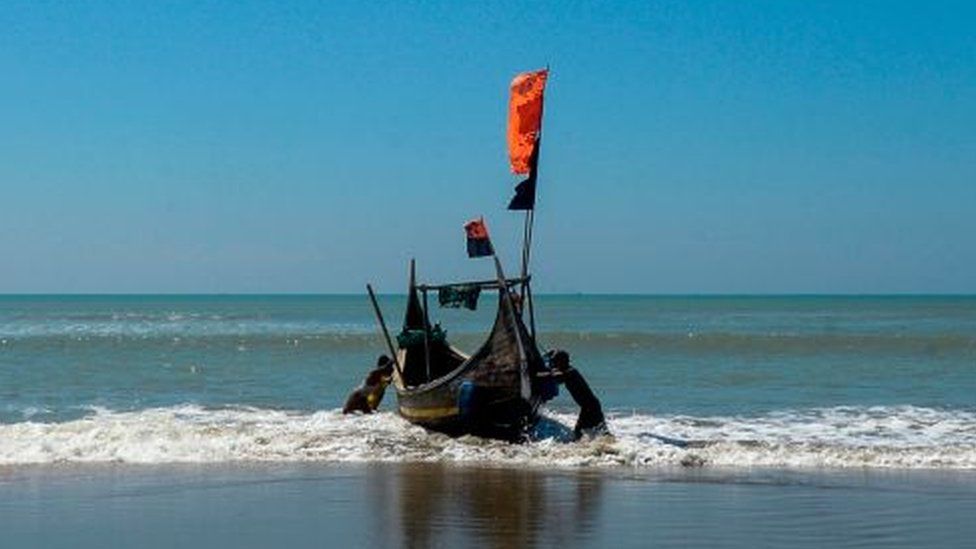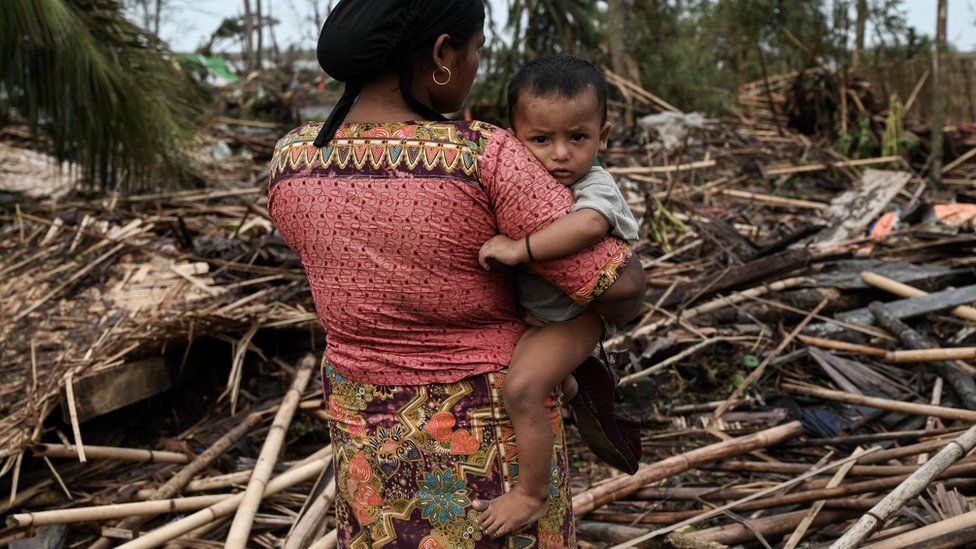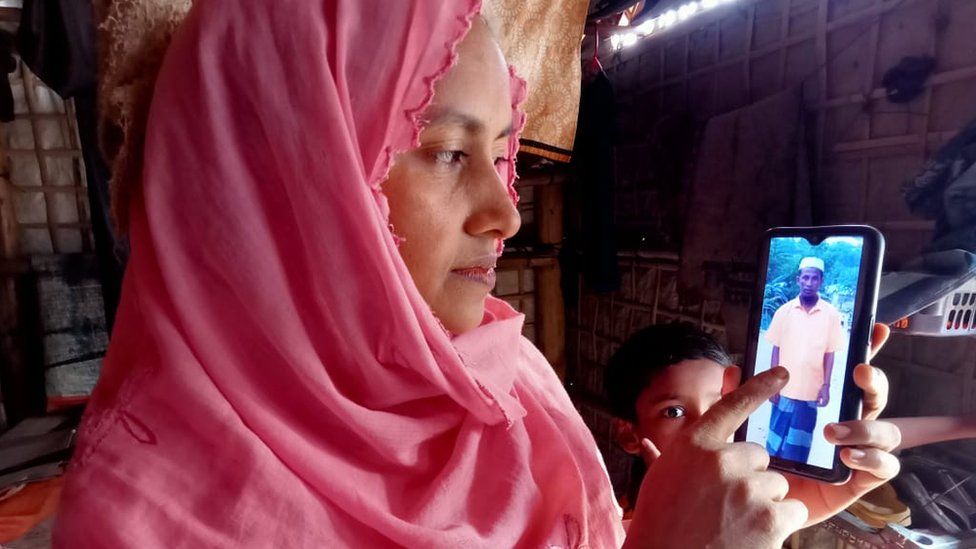
Sounds of gunfire keep Modina Khatun awake every night in Cox’s Bazaar Bangladesh – the world’s largest refugee camp.
She fears that spiralling gang violence there will make a widow of another Rohingya woman like herself, with young children to feed.
Ms Khatun’s husband, Bashir Ullah, became a grim statistic last June when he was shot dead after getting caught in the crossfire of two gangs at Cox’s Bazar in south-east Bangladesh. That night, he volunteered to patrol the sprawling camp that the Rohingyas have called home for six years now.
Drug smuggling and human trafficking gangs have turned life at Cox’s Bazar into a nightmare for the close to one million ethnic minority Rohingyas, many of whom crossed into Bangladesh from Myanmar in 2017 to escape a military crackdown. Forty-eight people have died in gang violence as of mid-July, exceeding the 40 fatalities for all of 2022.
The violence complicates the plight of the Rohingyas. Their return to Myanmar is uncertain while their host, Bangladesh considers them a burden. Squalid conditions in Cox’s Bazar have also made them vulnerable to disasters, like massive fires and typhoons.
Those feelings of frustration and helplessness are being exploited by various armed groups such as the Arakan Rohingya Salvation Army (ARSA), the Rohingya Solidarity Organisation (RSO) and the Munna Gang.
“We fled from the Myanmar military to save our lives. I hardly imagined that my husband would be killed in our camp by another Rohingya,” Ms Khatun, 31, told the BBC.
“I cannot sleep at night. We want to leave the camp. I don’t know what the future holds for me and my sons,” she added.
Mohammed Mizanur Rahman, a senior official in charge of Bangladesh’s Refugee Relief and Repatriation commission said drug peddlers were using Rohingya as carriers to smuggle drugs from Myanmar into Bangladesh.
“There are a million people without any opportunities. That creates space for criminals. They are violent and need to be held to account,” Meenakshi Ganguly, deputy Asia Director at Human Rights Watch told the BBC.
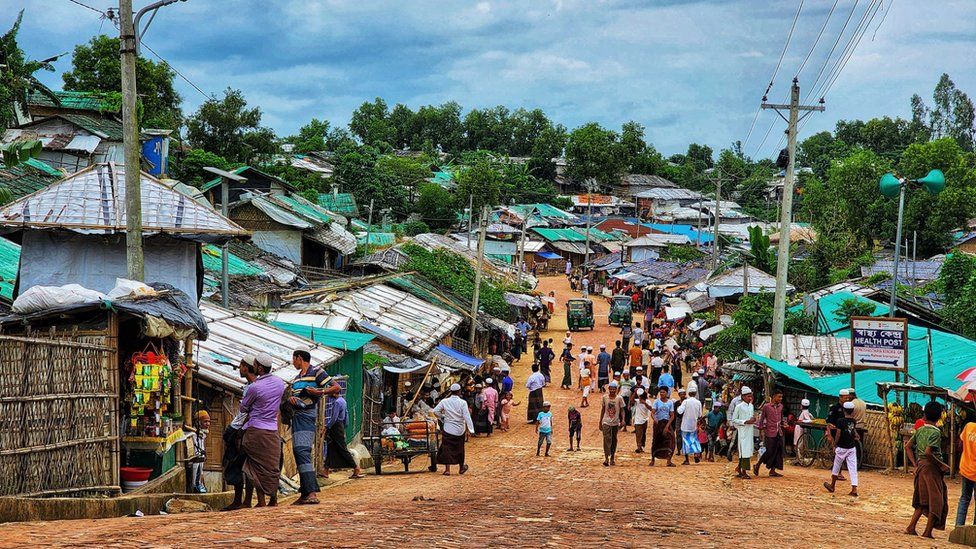
Mohib Ullah, a prominent Rohingya rights leader is among the victims of the spiralling violence. He was shot dead while speaking to a refugee gathering in September 2021. The groups are also accused of abducting people for ransom, as well as forced marriage and child recruitment.
One of their former captives, who asked to be identified only as Nur, told the BBC that he had been tortured while being held in a forest area near the border town of Teknaf for four days.
“I was made to stand in a stream day and night and was constantly beaten with wires and sticks. I thought I won’t make it,” said the 21-year-old who now lives in a south-east Asian capital.
Nur said the ARSA militants demanded a ransom of $18,000 (£14,126) for his release, but his parents raised only about $2300. He managed to escape after the group asked for the remainder of the ransom. A spokesman for ARSA did not respond to a request for comment.
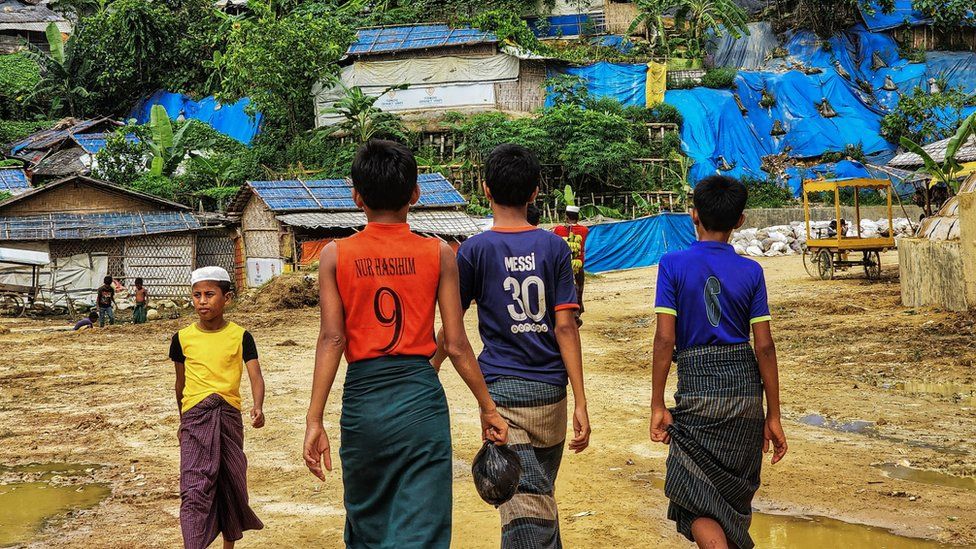
Bangladeshi authorities say their worries of deteriorating security in the Rohingya areas are becoming a reality.
The UN and aid agencies find themselves stretched for resources to provide for the Rohingyas as international attention shifts to the war in Ukraine. Monthly food vouchers have been cut to $8 from $12 per person.
Bangladesh says it has deployed more than 2,000 personnel from the Armed Police Battalion to secure refugee camps. But the only solution to stop the violence, authorities say, is to repatriate the Rohingyas back to Myanmar.
Myanmar and Bangladesh agreed on a possible repatriation of refugees in 2017 but there has been little progress.
In recent months, Myanmar has shown some interest in taking back some refugees, if not all, following a China-backed initiative. More than 1,000 Rohingya have been shortlisted to be sent back in a pilot project.
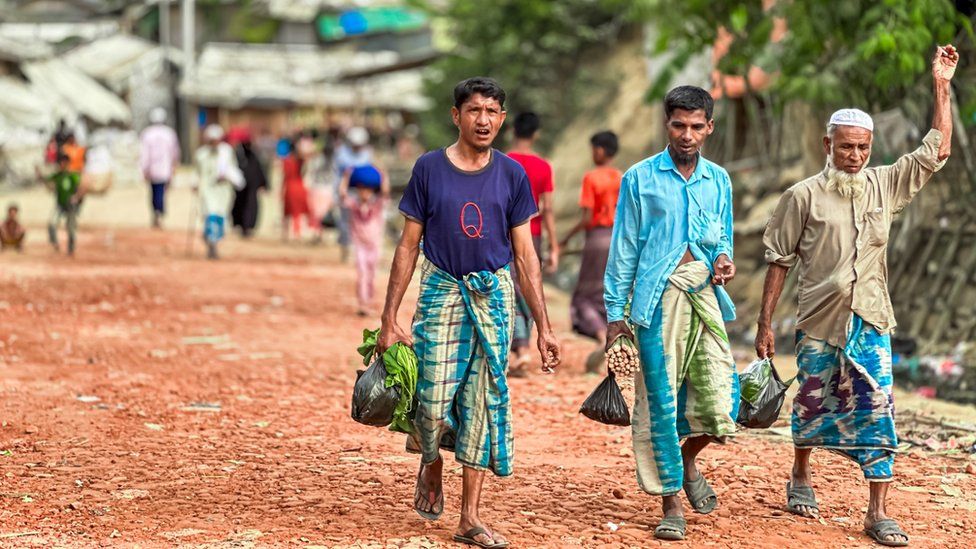
But the Rohingyas are not happy with this.
“Unless our safety and security are guaranteed, unless we are allowed to go back to our villages, we are not keen on repatriation,” says a Rohingya activist who did not want to be identified.
With their fate uncertain, dozens of Rohingya are taking perilous high seas journeys via seas aboard rickety boats to escape to Indonesia and Malaysia, often paying huge sum to human traffickers. Dozens drown every year attempting the sea crossing.
Six years after reaping worldwide praise for accepting Rohingya refugees, Bangladesh now faces a huge dilemma.
With foreign aid dwindling, Dhaka says it’s spending more of its own resources to manage the camps. At the same time, the worsening security situation is triggering alarm.
And widows of the violence, like Ms Khatun, continue to live a nightmare.

